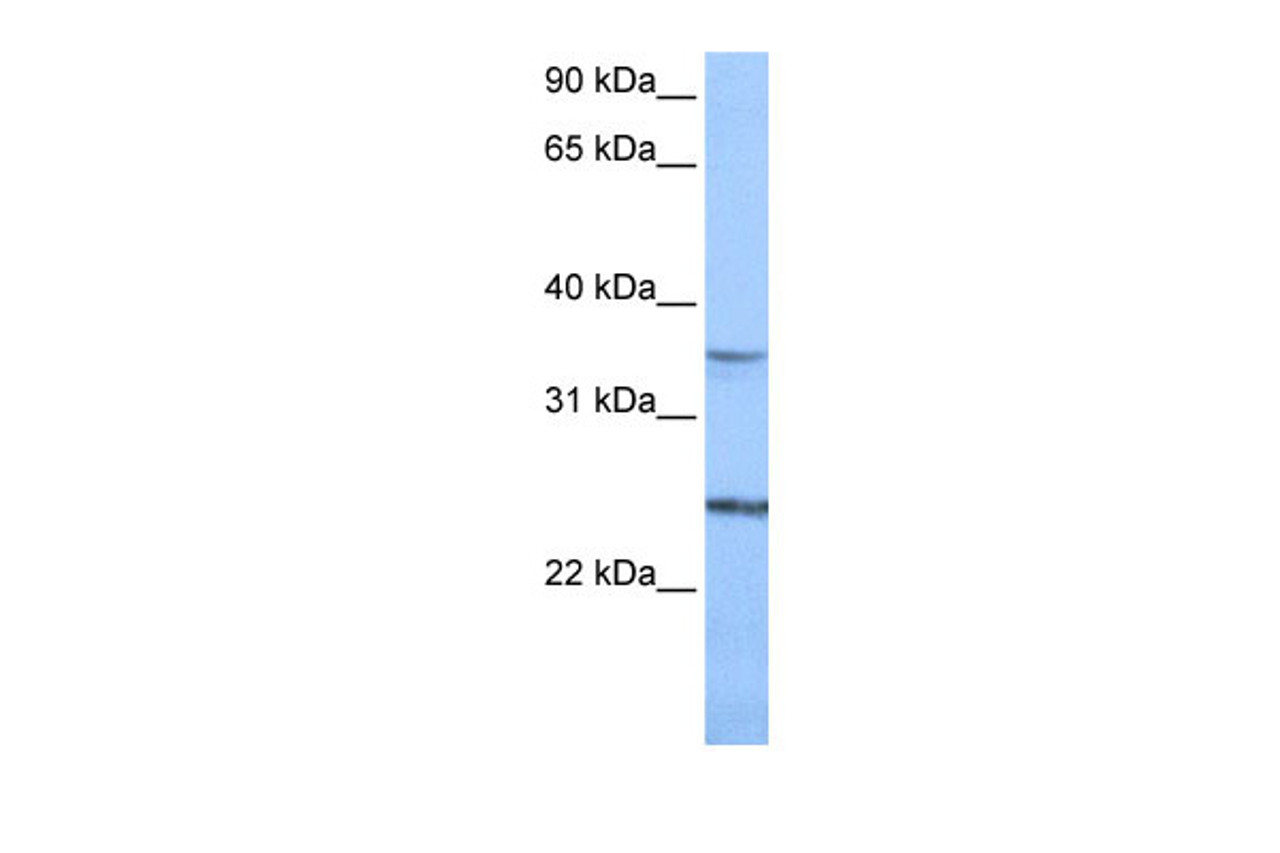Product Description
PIGF Antibody | 29-291 | ProSci
Host: Rabbit
Reactivity: Human
Homology: N/A
Immunogen: Antibody produced in rabbits immunized with a synthetic peptide corresponding a region of human PIGF.
Research Area: Membrane, Signal Transduction
Tested Application: E, WB
Application: PIGF antibody can be used for detection of PIGF by ELISA at 1:12500. PIGF antibody can be used for detection of PIGF by western blot at 1 μg/mL, and HRP conjugated secondary antibody should be diluted 1:50, 000 - 100, 000.
Specificiy: N/A
Positive Control 1: Cat. No. 1205 - Jurkat Cell Lysate
Positive Control 2: N/A
Positive Control 3: N/A
Positive Control 4: N/A
Positive Control 5: N/A
Positive Control 6: N/A
Molecular Weight: 25 kDa
Validation: N/A
Isoform: N/A
Purification: Antibody is purified by peptide affinity chromatography method.
Clonality: Polyclonal
Clone: N/A
Isotype: N/A
Conjugate: Unconjugated
Physical State: Liquid
Buffer: Purified antibody supplied in 1x PBS buffer with 0.09% (w/v) sodium azide and 2% sucrose.
Concentration: batch dependent
Storage Condition: For short periods of storage (days) store at 4˚C. For longer periods of storage, store PIGF antibody at -20˚C. As with any antibody avoid repeat freeze-thaw cycles.
Alternate Name: PIGF, MGC32646, MGC33136,
User Note: Optimal dilutions for each application to be determined by the researcher.
BACKGROUND: PIGF is a protein involved in glycosylphosphatidylinositol (GPI) -anchor biosynthesis. The GPI-anchor, a glycolipid containing three mannose molecules in its core backbone, is found on many blood cells where it serves to anchor proteins to the cell surface. PIGF and another GPI synthesis protein, PIGO, function in the transfer of ethanolaminephosphate to the third mannose in GPI. This gene encodes a protein involved in glycosylphosphatidylinositol (GPI) -anchor biosynthesis. The GPI-anchor, a glycolipid containing three mannose molecules in its core backbone, is found on many blood cells where it serves to anchor proteins to the cell surface. The encoded protein and another GPI synthesis protein, PIGO, function in the transfer of ethanolaminephosphate to the third mannose in GPI. Alternatively spliced transcript variants encoding different isoforms have been described.
 Euro
Euro
 USD
USD
 British Pound
British Pound
 NULL
NULL










